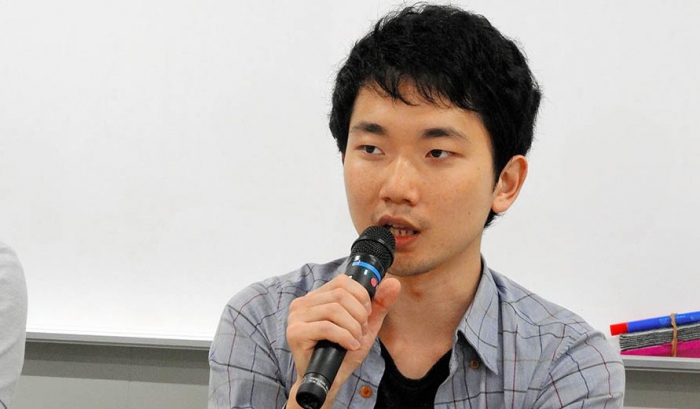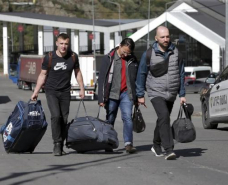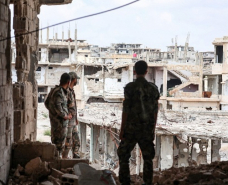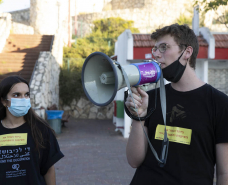S. Korean conscientious objector finds new life in France

By IZUMI SAKURAI/ Staff Writer
Lee Yea-da couldn't stomach the thought of mandatory military service. So he fled South Korea and sought asylum in France, an action that is almost unheard of in his country.
With few exceptions, South Korea requires all male citizens to take a physical examination at the age of 19 ahead of serving almost two years in the military.
The government deems compulsory military service necessary to counter the threat from North Korea.
Even though hundreds of men reject conscription for religious and other reasons each year, it is rare for a citizen to seek political asylum overseas.
Lee was granted asylum in 2013 by the French government.
As South Korea does not recognize the concept of conscientious objector, there is no alternative to military service other than serving a jail sentence.
Lee, who at 23 still has a boyish face, visited Tokyo in September at the invitation of Karin Amamiya, a writer and social critic.
During an interview, Lee told The Asahi Shimbun that even the thought of killing a mosquito appalls him.
As a junior high school student, Lee said he was greatly touched by “Buddha,” a comic series created by the late Japanese manga legend Osamu Tezuka.
Referring to the thoughts that ran through his mind after reading the manga, Lee said: “I have no right to take the life of another person. I do not want to be trained to murder.”
His distraught mother begged him to stay in South Korea.
“We won’t meet each other again if you go far away,” she said. “Please remain in this country and serve your prison sentence here.”
But Lee was determined to leave.
“If I reject national service, I would have to live as a traitor in my homeland all my life. No company would hire me.”
Fearful that publicity would trigger more bids for asylum overseas, leading South Korean media outlets ignored Lee’s story.
Having studied Japanese at college, Lee considered applying for refugee status in Japan but gave up the idea after learning via the Internet that Japan has strict rules about accepting refugees.
In 2012, Lee flew to Paris on a one-way ticket. It was two months before his mandatory service was to begin. He had only $600 (60,000 yen) in his pocket.
In his application to the French government for refugee status, Lee cited “persecution from members of society and fear of imprisonment.”
After he went through his money, he moved into a shelter for homeless people.
He was finally granted political asylum in June last year.
During his stay in Japan, he gave a lecture in Tokyo.
He talked about the physical abuse that rookies face at the hands of senior soldiers, citing an incident in April in which the soldier died, and a shooting incident by a frontline soldier in June that claimed five lives.
“(These incidents) happened because of the inhumane nature of life in the military, which forces soldiers to live in stress and isolated from society,” he said.
“If you want to do what you believe is right, you have to go abroad or to serve a sentence,” he told the Japanese audience, many of whom must have wondered if military conscription will come to Japan now that the government has approved of exercising the right to collective self-defense.
“You should not let your society become like this,” Lee said.
He stays in touch with his family in South Korea through e-mail messages and phone calls.
Having found work at a bakery making bagels and sandwiches, Lee is studying French with the aim of acquiring French citizenship.
Source: http://ajw.asahi.com/article/behind_news/people/AJ201410260010
Countering Military Recruitment

WRI's new booklet, Countering Military Recruitment: Learning the lessons of counter-recruitment campaigns internationally, is out now. The booklet includes examples of campaigning against youth militarisation across different countries with the contribution of grassroot activists.
You can order a paperback version here.








